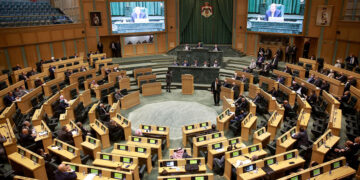Summary
Hassiba Mahsoub is a 55 year old engineer and businesswoman and the sister of Mohamed Mahsoub, formerly the Vice President of the Al-Wasat party and Minister of State for Legal and Parliamentary Affairs under Egyptian President Mohamed Morsi.
Egyptian authorities arrested and forcibly disappeared Mahsoub in 2019 for allegedly joining the Muslim Brotherhood, labeled a "terrorist" organization in the country, and have been holding her in arbitrary detention apparently to punish the Mahsoub family for Mohamed's participation in the Morsi government, which came to an end in 2013 following a military coup that led to the installation of current President Abdel Fattah El-Sisi.
More than 10 years after the coup, Egyptian security forces continue to target former officials who worked under Morsi and their families. Mahsoub was not a member of the Brotherhood nor did she participate in any political activities or organizations. After more than two years in pretrial detention on dubious charges, Mahsoub's health has rapidly deteriorated, with authorities at al-Qanater Women's Prison failing to provide her with needed medical assistance.
Methodology
DAWN researchers interviewed sources close to the detainee, and made use of other information from published sources that we consider reliable, as indicated below. Interviews include the following:
- Source A: October 22, 2022
- Source B: September 14, 2022 and March 16, 2023
- Source C: March 17, 2023
We do not disclose the identity of these sources to protect their security. We reference them as "Source A," "Source B," and "Source C."
In addition to the three undisclosed sources, a DAWN researcher also met with exiled Egyptian journalist Solafa Magdy who was previously imprisoned at al-Qanater Prison in the same cell as Mahsoub.
Personal and Professional Background
Hassiba Mahsoub is a 55 year old engineer and businesswoman. She is the sister of Dr. Mohamed Mahsoub, formerly the Vice President of the Al-Wasat party and Minister of State for Legal and Parliamentary Affairs under Egyptian President Mohamed Morsi. According to interviews with Sources A, B, and C, Mahsoub did not participate in political activities or belong to any political party or organization leading up to her arrest. Her arrest appears to be driven by efforts of the Egyptian government to punish her family for the role of her brother, Mohamed Mahsoub, in the Morsi government.
Time and Circumstances of Arrest
Egyptian security forces arrested Hassiba Mahsoub on November 19, 2019 in Alexandria. Following her arrest, Egyptian security personnel forcibly disappeared Mahsoub and transferred her to an unknown location, only to resurface 68 days later in Cairo before Judge Khaled Diaa el-Din of the Supreme State Security Prosecution (SSSP).
Charges
The Supreme State Security Prosecution charged Mahsoub on January 27, 2020 with joining a "terrorist" group, in reference to membership in the outlawed Muslim Brotherhood, which the Egyptian government has designated as a "terrorist" group. Mahsoub is not a member of the Muslim Brotherhood, nor did she participate in political activities before her arrest.
Joining a terrorist group is cited as a crime in Article 12 of Egypt's Anti-Terror Law (Law No. 94 of 2015) which states,
Whoever establishes, organizes, or manages a terrorist group, or assumes its leadership or a leadership position in it, shall be punished by death or life imprisonment. Temporary hard labor shall be the penalty inflicted on whoever joins a terrorist group or participates in it in any way while being aware of its objectives, and the punishment shall be temporary hard labor for a period of no less than ten years if the perpetrator receives military, security, or technical training by the terrorist group to achieve its objectives, or if the perpetrator is a member of the armed forces or police. Whoever compels a person to join a terrorist group, or prevents him from disassociating from it, shall be punished with life imprisonment. Execution shall be the penalty if this action results in the person's death.
Trial and Legal Proceedings
After 68 days in an undisclosed location following her arrest on November 19, 2019, Mahsoub appeared before the Supreme State Security Prosecution (SSSP) on January 27, 2020, in connection with Case No. 1530. The SSSP ordered Mahsoub's detention pending an "investigation" into her alleged ties to a "terrorist group" inside Egypt. Mahsoub remained in detention, without trial, until the Council Chamber of the Cairo Criminal Court released her with "precautionary measures" on December 13, 2020.
However, security forces rearrested Mahsoub on December 14, 2020, less than 24 hours following her release on the same allegations, joining her case with several others as part of Case No. 955, targeting other activists for also allegedly joining a "terrorist" organization and "spreading false information." Mahsoub currently remains in pretrial detention.
January 27, 2020
The Supreme State Security Prosecution (SSSP) ordered Mahsoub's detention pending an "investigation" into her alleged ties to a "terrorist" group.
The SSSP presented no evidence against Mahsoub, according to interviews with Solafa Magdy following her discussions with Mahsoub while in al-Qanater Women's Prison. According to Magdy, the files presented to Mahsoub's lawyer by the court contained no proof of the allegations against her.
October 27, 2020
The Cairo Criminal Court renewed Mahsoub's pretrial detention for 45 days.
Under Egyptian law, the prosecution has the right to renew the detention of a defendant pending investigations for up to ten consecutive sessions, with 15 days between every two sessions. In other words, the prosecution can extend the detention of a defendant for a maximum of 150 consecutive days. After the 150-day period, a Criminal Court assumes the responsibility of the decision to end or extend the detention, with 45 days allowed to pass between each of two consecutive sessions. DAWN researchers were unable to ascertain the name of the judge presiding over this case. The combined prosecutorial and judicial pretrial detention cannot exceed two years under Egyptian law for even the worst offenses.
December 13, 2020
The Council Chamber of the Cairo Criminal Court released Mahsoub with "precautionary measures," pending investigations on charges of "spreading false news that would affect the country's national security" and "joining a group established in violation of the provisions of the law and the constitution."
December 14, 2020
Security forces rearrested Mahsoub on the same allegations of having joined a "terrorist" group, joining her case with several others as part of Case No. 955.
March 16, 2022
The Cairo Criminal Court renewed Mahsoub's pretrial detention for 45 days.
June 12, 2022
The Cairo Criminal Court renewed Mahsoub's pretrial detention for 45 days.
July 27, 2022
The Cairo Criminal Court renewed Mahsoub's pretrial detention for 45 days.
September 6, 2022
The Cairo Criminal Court renewed Mahsoub's pretrial detention for 45 days.
January 23, 2023
The Cairo Criminal Court renewed Mahsoub's pretrial detention for 45 days.
February 28, 2023
The Cairo Criminal Court renewed Mahsoub's pretrial detention for 45 days.
Gaps in the above timeline are the result of no official information issued by the SSSP regarding Mahsoub's status.
Detention Conditions
According to interviews between DAWN researchers and Sources A, B, C, and Solafa Magdy, Hassiba Mahsoub's physical and psychological health are deteriorating rapidly and prison authorities are neglecting her deteriorating health and refuse to provide her with the treatment she requires. Mahsoub suffers from several medical ailments, including a heart condition, high blood pressure, and four tumors in her uterus that often result in severe bleeding. Despite this, prison authorities transferred her in January 2021 from Ward 8 to Ward 6, reserved for those convicted of drug trafficking, and forced her to sleep on the floor for two months despite her deteriorating health, according to Solafa Magdy.
There are numerous reports of widespread abuses taking place within al-Qanater Women's Prison, including the denial of food and water to inmates, prison authorities confiscating the clothing of women detained in the complex, medical negligence, physical assault, and more.
Impact on Family
Egyptian authorities continue to target Hassiba Mahsoub's family as a result of her brother, Mohamed Mahsoub, participating in the administration of former President Mohamed Morsi. According to an interview between DAWN researchers and Source A, prison administration authorities had prevented family members from visiting Mahsoub for the majority of her detention despite Egyptian law stipulating that prisoners are allowed two visits per month, but allowed them to visit her beginning in early 2022, where they continue to witness her rapidly deteriorating health.
Egyptian authorities continue to target Mohamed Mahsoub, currently living in exile in France, and his family members. Egyptian authorities prevented Mohamed Mahsoub's daughters from traveling to France from Cairo to visit their father and confiscated their passports. Egyptian authorities have also pressured Western governments to arrest Mohamed Mahsoub through Interpol, alleging he committed crimes against the state. According to an interview with Source A, Italian police stormed his hotel in Catania, Italy, at the behest of Egyptian authorities. Italian police released him shortly thereafter after determining the allegations were false.
Violation of Rights
The right to a fair trial
The decisions of the SSSP and the Cairo Criminal Court to keep Mahsoub in pre-trial detention violate the Egyptian Code of Criminal Procedure and international law. The SSSP ignored the legal requirements for holding Mahsoub in pre-trial detention, did not present any evidence to back the charges against her, and refused to investigate her enforced disappearance for 68 days. Egyptian authorities regularly weaponize pretrial detention in Egypt. The criminal courts repeatedly extended Mahsoub's detention in her and/or her lawyer's absence on multiple occasions.
According to Article 136 of the Code of Criminal Procedure No. 150 of 1950, and amended by Law 145 of 2006, "The investigating judge must, before issuing a detention order, hear the statements of the Public Prosecution and the defense of the accused." Article 142 stipulates, "Pre-trial detention ends after the 15 days have passed since the accused is imprisoned, yet the investigating judge may […] and after hearing the statements of the Public Prosecution and the accused, issue an order to extend the imprisonment for similar periods so that the detention period does not exceed in a total of forty-five days." The indispensability of hearing the detainee's defense is further highlighted in Article 143 as well.
The right to freedom and security
Unidentified security forces have unlawfully deprived Mahsoub of her liberty by holding her in lengthy pretrial detention and only allowing sporadic contact with her family and lawyer instead of providing her with regular access as stipulated in Egyptian law.
[Article 14, Arab Charter on Human Rights; Article 9 (1), the International Covenant on Civil and Political Rights (ICCPR); Article 3, 9, Universal Declaration of Human Rights (UDHR)].
According to Article 54 of the Egyptian constitution:
Personal freedom is a natural right which is safeguarded and cannot be infringed upon. Except in cases of in flagrante delicto, citizens may only be apprehended, searched, arrested, or have their freedoms restricted by a causal judicial warrant. All those whose freedoms have been restricted shall be immediately informed of the causes; therefore, notified of their rights in writing, be allowed to immediately contact their family and lawyer, and be brought before the investigating authority within twenty-four hours of their freedoms having been restricted.
Arbitrary detention
The UN Working Group on Arbitrary Detention has established categories of cases where a deprivation of liberty is arbitrary under the definition of Article 9 of the Universal Declaration. These include detention when "it is clearly impossible to invoke any legal basis justifying the deprivation of liberty," "when the deprivation of liberty results from the deprivation of the exercise of the rights and freedoms granted by certain other rights in the Declaration of the International Covenant on Civil and Political Rights, including the right to freedom of speech," and when "the deprivation of liberty constitutes a violation of international law on the grounds of discrimination, including discrimination as to political opinion, that aims towards or can result in the ignoring of equality of human beings."
Mahsoub's imprisonment appears to meet these criteria. Consequently, her detention is arbitrary per Article 9 of the Universal Declaration.
The right not to be subjected to enforced disappearance
Security forces forcibly disappeared Mahsoub for 68 days before she appeared before the SSSP, risking her security by placing him outside the protection of law.
The UN definition of enforced disappearance as stated in Article 2 of the International Convention for the Protection of All Persons from Enforced Disappearance (CED) does not include a time dimension which indicates that enforced disappearance as a crime is constituted from the moment of abduction of the victim. Differently, the International Criminal Court's definition, as stipulated in Article 7 (2, i) of the Rome Statute of the International Criminal Court, considers enforced disappearance as a crime when it occurs "with the intention of removing [the victim] from the protection of the law for a prolonged period of time." For more information, see Philip Linghammar's Time for Enforced Disappearance to Disappear (pp. 11-13).
Egypt has not signed the International Convention for the Protection of All Persons from Enforced Disappearance.
The right to physical and mental health
The administration of al-Qanater Women's Prison continues to neglect Mahsoub's deteriorating health and deny her the specialized treatment she requires, particularly for the tumors in her uterus.
[Article 33, Egypt's Prisons Organization Law No. 396 of 1956; Article 18, 55, Egypt's constitution; Article 14 (4) Arab Charter on Human Rights; Article 25 (1), UDHR; Article 12 (1), ICESCR; Principle 9, Basic Principles for the Treatment of Prisoners; Principle 24, Body of Principles for the Protection of All Persons under Any Form of Detention or Imprisonment]
The right to family and lawyer visits
Authorities at al-Qanater Women's Prison have unlawfully deprived Mahsoub of visits with her family and legal counsel.
The Egyptian Prisons Organization Law No. 396 of 1956, most recently amended on January 24, 2015, by Law 106 of 2015, states in relevant part:
Subject to the provisions of the Code of Criminal Procedure, every convicted person shall have the right to correspond and telephone communication for a fee, and his family may visit him twice a month, all under the supervision and supervision of the prison administration and in accordance with the controls and procedures specified in the internal regulations.
Pretrial detainees should have this right unless a decision is issued by the competent Public Prosecution or the competent investigating judge otherwise, in accordance with the procedures specified in the internal regulations.
A prisoner's lawyer shall be authorized to meet with him privately, provided that he obtains written permission from the Public Prosecution and from the investigating judge in the cases he is delegated to investigate, whether the interview is at the invitation of the prisoner or at the request of the lawyer.
Officials Involved in Prosecution and Detention
Khaled Diaa el-Din is the head of Egypt's Supreme State Security Prosecution (SSSP) and the prosecutorial official who approves pretrial detentions and renewals issued by SSSP prosecutors working under his authority. Diaa el-Din is responsible for the unlawful prosecution of thousands of Egyptians for peaceful activism, protected by international human rights law. El-Din refused to investigate the enforced disappearance of Hassiba Mahsoub for 68 days before she appeared before the SSSP and approved the renewal of her pretrial detentions.
Officer Amr Hisham is the head of investigations inside al-Qanater Prison, deliberately isolated Mahsoub from other inmates and transferred her from Ward 8 to Ward 6, reserved for those convicted of drug trafficking, and forced her to sleep on the floor for two months despite her deteriorating health. Amr Hisham refuses to provide Mahsoub with the medical care she requires.







































